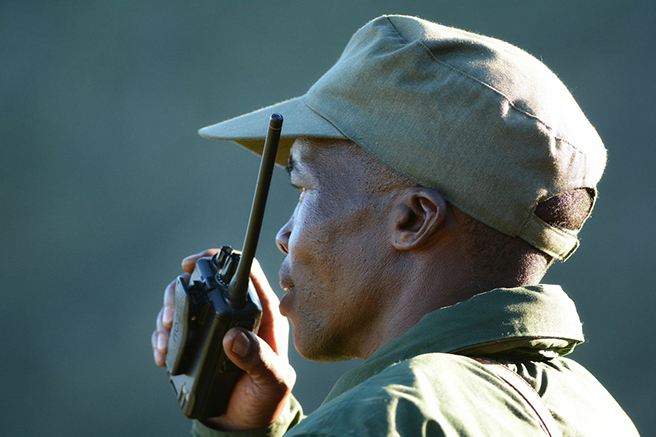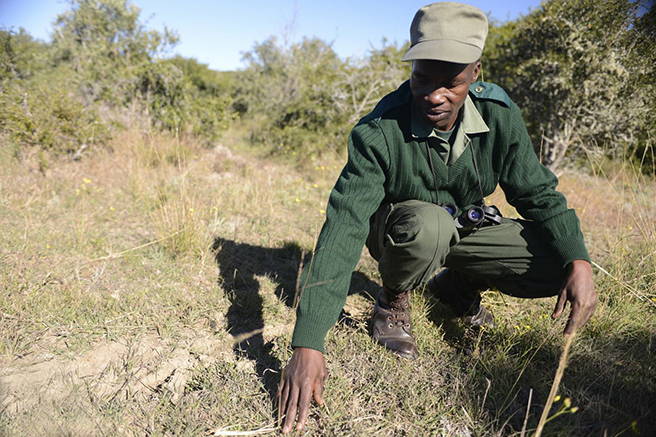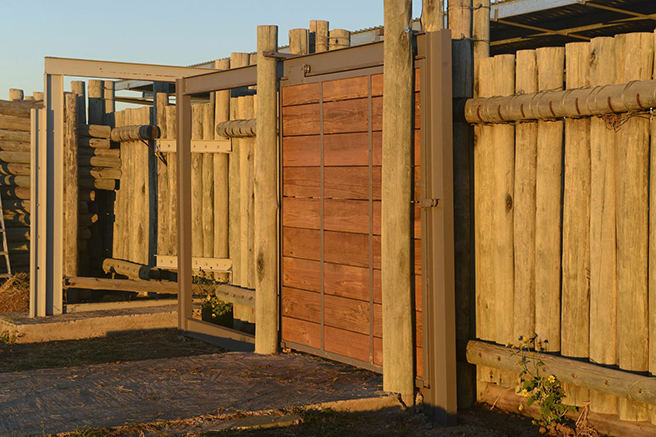Protecting Rhinos at Great Fish Nature Reserve

It’s impossible for those of us who are passionate about wildlife not to get a little discouraged these days with the almost daily news stories about rhino poaching. The wanton destroyers of these extraordinary animals are now high tech, and they’ve developed complex networks and systems to optimize the efficiency of their insidious operations.
They have been successful beyond anyone’s wildest expectations, and at times it seems that they’ve placed the rhino inexorably on the path to its doom.
As I write this on June 12th, the total rhino body count in South Africa for the calendar year is in the vicinity of 400. At that pace, a reasonable projection for all of 2013 would be between 900 and 1000 animals slaughtered. Losses at this pace cannot be sustained.
That’s why it’s so exhilarating to find that rare outpost of progress in the anti-poaching campaign. The Great Fish River Nature Reserve (GFNR) in South Africa’s Eastern Cape province is home to several black rhinos, and not a single one of them has been lost to poachers as of this date. My traveling companion, Grant Wheeler of the African Wildlife Foundation, and I were fortunate to spend two days with the reserve’s leadership this past week, and after seeing their team in action, it’s easy to understand why their track record is so stellar.
Gavin Shaw is the manager of GFNR, and a more committed conservationist you’ll never see. He and his team patrol the reserve with the utmost vigilance and, based on our research, they face up to every threat, even at the risk of their own well-being. Their monitoring and surveillance mechanisms are thorough and imaginative, but out of respect for their strategy, no amplifying details will be provided here for fear of informing the poachers.

Gavin and his infectiously enthusiastic assistant, Cathy Dreyer, are realistic about the challenges they face. Past success is no guarantee against future attempts on GFNR rhinos. Their team is aware that anti-poaching strategies must evolve with the threat, but this can be problematic in a resource constrained environment. They depend heavily on organizations like African Wildlife Foundation, whose support has allowed them to procure the communications equipment that has become so critical to coordinating and synchronizing GFNR anti-poaching patrols. AWF funds have also enabled Gavin’s team to improve the boma facilities that serve as a holding area for rhinos in transition to other locations. Both Gavin and Cathy are currently in training to certify as pilots of ultra-light aircraft. AWF funds have been effectively employed to improve hangar facilities and for upgrades to the security of GFNR aircraft – prime targets for poacher’s sabotage.

Gavins top priority now is a comprehensive habitability upgrade to staff quarters. The ranger living conditions are very austere, with only the most basic facilities. These men literally place their lives on the line on a daily basis to protect GFNR rhinos. Their morale and continued effectiveness are contingent on their quality of life. They deserve an upgrade to their living quarters and reserve management is committed to seeing those improvements happen.
Positive developments in the anti-poaching battle are far too uncommon, and they are becoming increasingly rare as poaching networks become ever more sophisticated. But Gavin, Cathy and their superb team of trackers at GFNR illustrate the power of hard work, skillful management and innovative strategies in dealing with rhino poaching. We can only hope that other reserves will ultimately realize similar success.